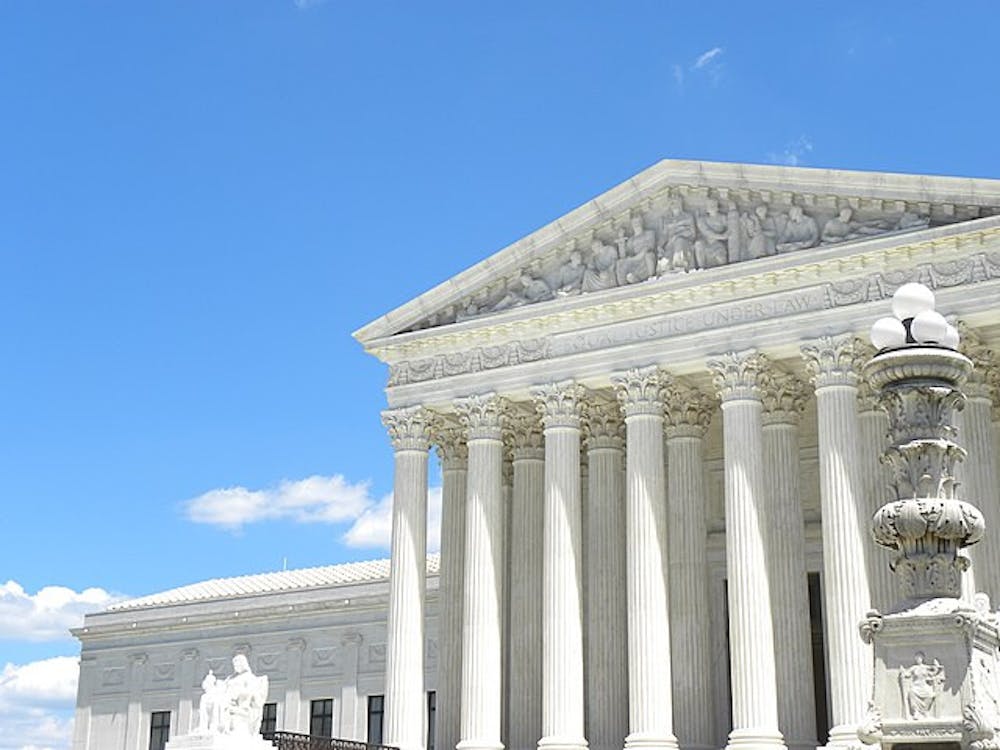The Supreme Court ruled Thursday that Harvard and the University of North Carolina-Chapel Hill’s use of race-conscious admissions is unconstitutional.
After decades of considering race in admissions, many American universities such as Brown will now seek to maintain a racially diverse student body with strict limitations on how they can consider race — primarily in the context of “how race affected” individual applicants’ lives.
The ruling marks the end to a years-long legal battle waged by Students for Fair Admissions, a non-profit aiming to end race-conscious college admissions. SFFA’s win contradicts the precedent set by the court in Grutter v. Bollinger, which upheld the practice of considering race.
Writing for the majority, Chief Justice John Roberts noted that Harvard and UNC’s use of affirmative action violated the Equal Protection Clause of 14th Amendment by discriminating against Asian American and white applicants.
“Eliminating racial discrimination means eliminating all of it,” Roberts wrote. The court’s six conservative justices uniformly sided against both Harvard and UNC in separate cases, 6-2 and 6-3, respectively. Roberts’ opinion said that both colleges lacked “focused and measurable objectives warranting the use of race” in admissions.
Dissenting opinions from the court’s liberal justices argued to maintain the practice, with Justice Sonia Sotomayor writing that “the Equal Protection Clause permits consideration of race to achieve its goal” of equality.
Brown, alongside other universities, previously filed an amicus brief supporting Harvard and UNC claiming that a racially diverse student body strengthens the “educational experience” of their students.
Shortly after the decision was released, President Christina Paxson P’19 P’MD’20 sent a message to the Brown community saying that she was “deeply disappointed in the Supreme Court ruling,” which the University has begun reviewing.
She emphasized the University’s commitment “to complying with the law, while also sustaining the diversity that is central to Brown’s mission.”
After the review, the University will determine “which of the various strategies for recruiting, admitting and yielding a talented, diverse student body” it can follow. Afterwards, the Office of the Provost will provide “guidance to all academic and administrative units at Brown that have an admission application or entry criteria for their programs or activities.”
In a poll conducted by The Herald last Spring, 56% of University students voiced support for race-conscious admissions with nearly 20% in opposition. 24% of students were unsure about the practice.
Students who identified as Black and/or Hispanic were the most supportive of this policy across class years.
With the decision looming for the better part of a year, the University had already begun formulating alternatives to race-conscious admissions. University officials had discussed the potential introduction of an “identity” supplemental essay, increasingly relying on legacy status given the increasing diversity of University alumni, and placing a greater emphasis on diversity in applicant recruitment and matriculation as means to maintain a racially diverse student body.
But the use of an identity supplemental essay may prove to be a challenge given Roberts’ ruling. While applicants can discuss how their identity has impacted their life in essays — “ be it through discrimination, inspiration, or otherwise” — the ruling specifically warned universities against using essays to replicate the results of race-conscious admissions.
“Universities may not simply establish through application essays or other means the regime we hold unlawful today,” the ruling reads.
In her heated dissenting opinion, Justice Sonia Sotomayor compared this modulated use of essays to putting “lipstick on a pig.”
“Today, this Court stands in the way and rolls back decades of precedent and momentous progress,” Sotomayor wrote.
Logan Powell, associate provost for enrollment, previously told The Herald about ongoing meetings among senior staff, faculty, students and stakeholders to prepare for this ruling.
The University had consulted “experts … to help address the implementation of possible plans,” he told The Herald. Powell did not immediately respond to The Herald’s request for comment.
Brown has a long history of activism surrounding the creation of a diverse campus community, and the University has filed amicus briefs in support of affirmative action in every Supreme Court case since 2002.
The Court has protected the use of race-conscious admissions in higher education since ruling on Regents of the University of California v. Bakke in 1978. But it also placed limits on the practice, eliminating the use of racial quotas in Bakke and formulaic advantages in Gratz v. Bollinger. Ruling Thursday, the six Justices in the majority were unsatisfied with the universities’ plan to use affirmative action indefinitely.
Before SFFA, the most recent cases presented to the Court regarding affirmative action were filed against the University of Texas-Austin, but the Justices upheld previous precedent. The Court has not addressed affirmative action since 2016. Since then, new appointments have made the Court markedly more conservative.
12:35: Story updated to include additional context about race-conscious admissions and previous University comment
1:10: Story updated with comment from President Christina Paxson

Owen Dahlkamp is the managing editor of newsroom on The Herald's 135th Editorial Board, overseeing the paper's news operations. Hailing from San Diego, CA, he is concentrating in Political Science and Cognitive Neuroscience with an interest in data analytics. In his free time, you can find him making spreadsheets at Coffee Exchange.





